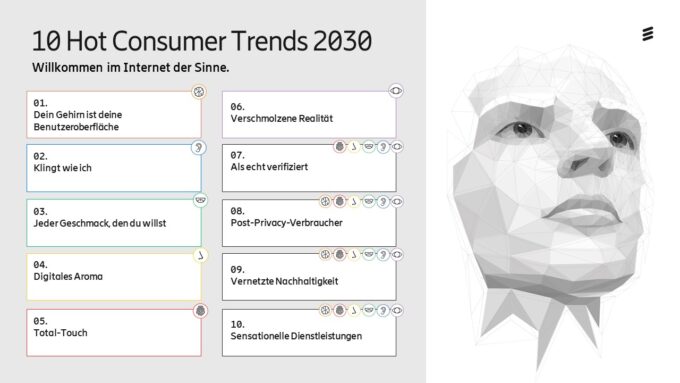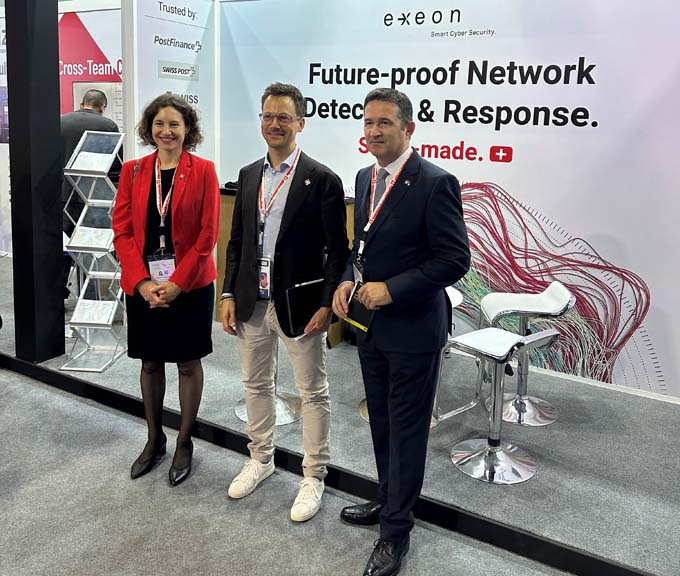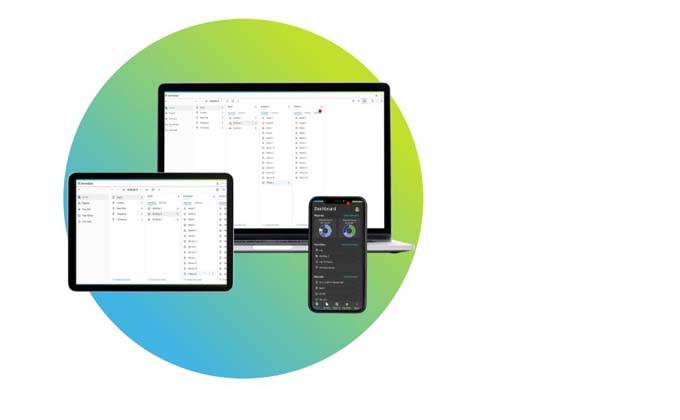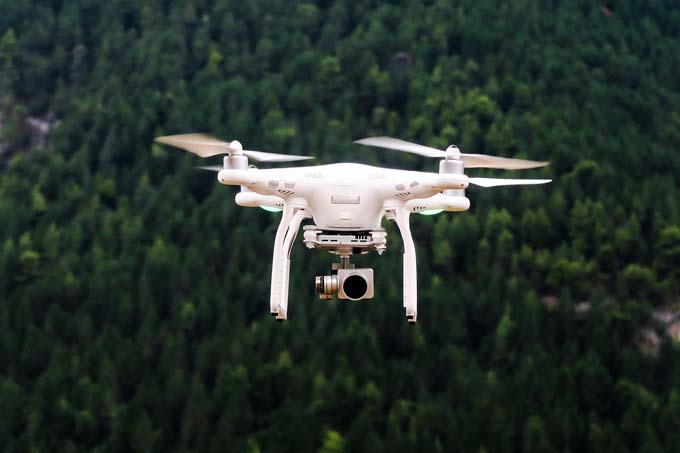A bit of the future with Ericsson ConsumerLab
The ninth edition of the Ericsson ConsumerLab's "10 Hot Consumer Trends" study examines consumer expectations of the so-called "Internet of the Senses". Does this network have a real chance? Will these ten identified trends really take off in the New Year?

According to surveys by Ericsson ConsumerLab, consumers would expect a range of useful services based on connected technologies that interact with our senses of sight, hearing, taste, smell and touch to be a general reality by 2030. Consumers predict that screen-based and increasingly multisensory experiences will compete and merge almost inextricably with reality.
The main drivers for the Internet of the Senses are the areas of entertainment and online shopping, as well as the climate crisis and the associated need to minimize potential climate impacts. The "Internet of the Senses" is made possible by technologies such as artificial intelligence, virtual reality, augmented reality, 5G and automation.
Environmental sphere meets AI
Dr Michael Björn, Head of Research Agenda, Ericsson Consumer & IndustryLab, and co-author of the report, says: "We often imagine the future as a linear progression from today. But we already need to consider what opportunities and challenges a world with fully digitized human senses will bring. For example, it could play an important role in climate protection measures and reducing the carbon footprint. Many activities can be digitized to reduce their climate impact. You could go to work, go on holiday and travel the world - all from the comfort of your own home. Consumers also expect the industry to address their concerns about individual privacy on the Internet of the Senses. For example, the issue that our senses could be manipulated to buy products or services. People will expect the necessary protections and safeguards to be in place."
The "10 Hot Consumer Trends for 2030 - Internet of the Senses" are:
Your brain is your user interface
59 percent of consumers believe we can see map paths on virtual reality goggles when we think of just one destination.
Sounds like me
67 percent believe that with a microphone, they will be able to realistically record anyone else's voice to fool even family members.
Any flavor you want
45 percent predict a device for their mouths that digitally enhances everything they eat, making every meal taste like their favorite.
Digital aroma
About 6 in 10 consumers expect to be able to visit forests or landscapes digitally, including experiencing all the natural smells of these places.
Total Touch
More than 6 in 10 consumers expect smartphones to have screens that reflect the shape and texture of the digital icons and buttons that are pressed.
Fused reality
7 in 10 consumers predict that virtual reality game worlds will be indistinguishable from physical reality by 2030.
Verified as genuine
"Fake news" could be coming to an end: Half of respondents say news services that have extensive fact-checking capabilities will be particularly popular by 2030.
Post-Privacy Consumer
Half of respondents are "post-privacy consumers": they expect privacy issues to be resolved so they can safely take advantage of a data-driven world.
Networked sustainability
Services based on the Internet of the Senses will make society more environmentally friendly, according to 6 out of 10 consumers.
Sensational services
45 percent of consumers expect digital malls to allow them to use all five senses while shopping.
The findings from the report are based on Ericsson ConsumerLab's global research activities spanning more than 24 years. They are primarily based on data from an online survey conducted in October 2019 among advanced Internet users in 15 cities around the world: Bangkok, Delhi, Jakarta, Johannesburg, London, Mexico City, Moscow, New York, San Francisco, São Paulo, Shanghai, Singapore, Stockholm, Sydney and Tokyo. The report reflects the expectations and predictions of 46 million early adopters of technology.









